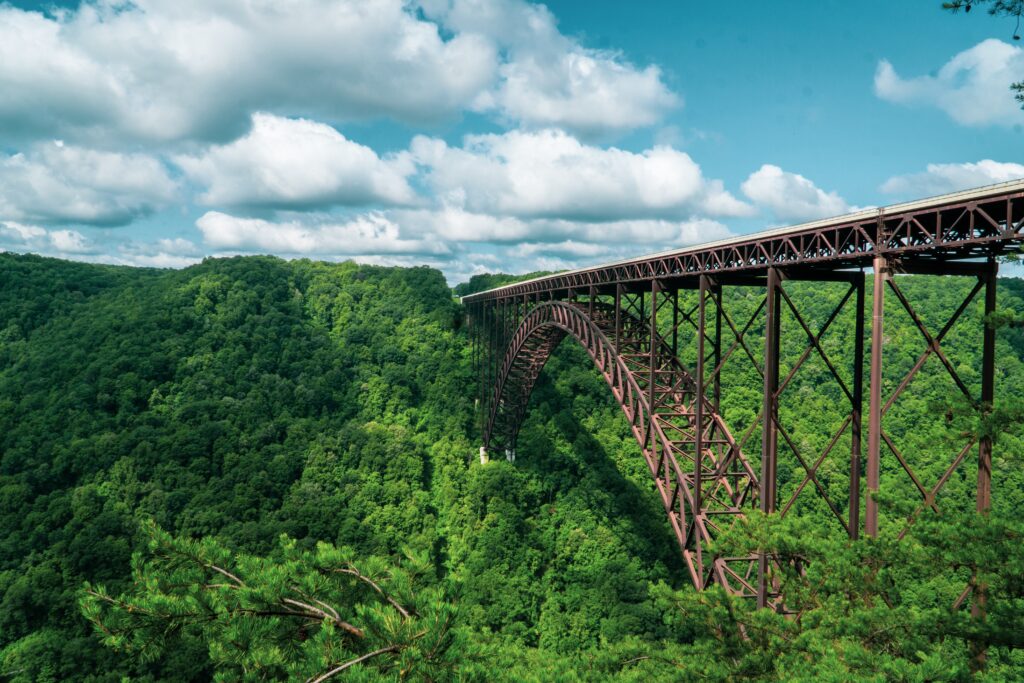What’s the first thing that comes to mind when you think of the word Appalachia? Often people think of the challenges or the despair they have read or heard about. Growing up in the coalfields, Will Warren knows this story all too well: how an extractive economy and dependence on the coal industry has devastated the “monolithic” region he calls home. Regions are often misrepresented or misunderstood, but perhaps none more than the Appalachian region, which covers 13 states, 423 counties, and more than 25 million people (according to the Appalachian Regional Commission). Born and raised in a county that has been consistently portrayed as one of the most impoverished in the country (at least on paper), Will and his brother Neil are trying to change the narrative.
Like the iconic opening lines of Loretta Lynn’s “Coal Miner’s Daughter”: “Well, I was born a coal miner’s daughter / In a cabin, on a hill in Butcher Holler,” Will grew up in a small town in eastern Kentucky. He brings his experiences with Vita Nuova as well as his decades of working nationally in economic and community development to a podcast called “Appalachia Meets World.” A podcast founded on place and perspective, Will and his brother Neil started the podcast to dispel some of the misconceptions people often have of Appalachia while celebrating its true diversity from an Appalachian perspective. They were tired of seeing parachute reporting misrepresenting Appalachia and wanted to provide a platform for Appalachians to share their stories and highlight the impactful things going on there, in addition to venturing outside the region to compare it with other places around the world. In their words, they are just trying to “Gas Up” Appalachia!
Aside from the podcast, through decades of economic and community development experience, Will admittedly always thinks about how what he is working on or seeing in the industry could apply to Appalachia. Specifically, decades of exploitation and disinvestment has caused private investments to lag compared with other parts of the country, and commercial banking access is extremely limited in many parts of the region. Historical disinvestment has created direct barriers to capital access, such as real and perceived risk, limited collateral and tangible assets, lack of borrower credit or track record, and more. It creates a vicious cycle of scarcity and lack of opportunity for residents of the region.
Will is also trying to provide a way to increase opportunity and capital access in Appalachia to address these challenges. He has been working on a new economic development tool that is specific to Appalachia and focused on the small businesses and main streets that are the heart and soul of communities throughout the region. The Apportunity Fund is an equity-based crowdfunding portal focused solely on the growth of startups and small businesses in the 13 states and 423 counties of Appalachia. It will give accredited and unaccredited investors (fueled only by the passage of the Jobs Act, specifically Title III) alike the opportunity to invest as little as $100 in Appalachian ventures. This tool helps to level the playing field and allows the power of the crowd to drive community investment, creating the opportunity for Appalachia to work for Appalachia.
As mentioned, Appalachia is a region that is not without its issues, but no region is without issues. One thing Will has learned in his time producing the podcast is that there are far more similarities than differences when comparing regions and their perceived challenges. The Appalachian region as a whole has never really been given the opportunity to take charge of its own narrative and tell its story. In allowing Appalachians to speak for Appalachia, Will and Neil hope to change that. Both industry and journalism have done their part in extracting as much as they could from the region, stripping the land of its bounty and the people who live there of their agency to be portrayed as the varied and valuable human beings they are. Appalachia doesn’t need saving—it needs respect, equal opportunity, and a voice. Will and his brother Neil, in a small way, are just trying to provide a platform for those voices to be heard. So, when someone hears those Loretta Lynn lyrics, they can stop disregarding that small town and possibly think beyond what they originally perceived “Butcher Holler” to be.
Check out the interview here and find out why “Appalachia Meets World” is important to Will and how it has become a useful tool for economic and community development empowerment throughout the Appalachian region. Throughout the interview, you’ll quickly find that Will stays true to the mantra of Appalachia Meets World: “No matter where I roam or how far away I get, I’ll remember to remain ‘Always Appalachian.’”

